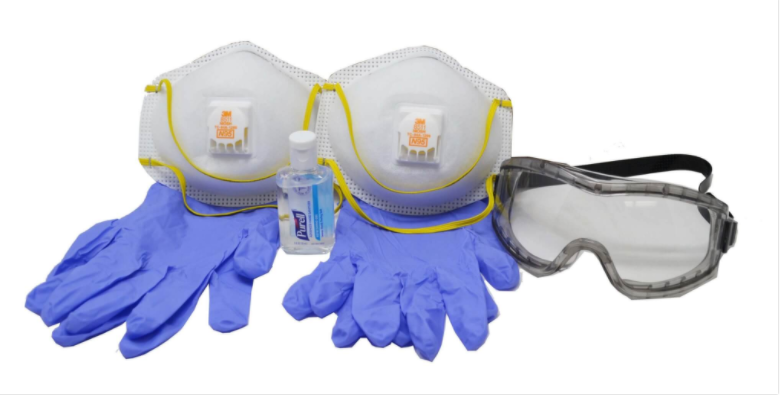Beyond all of the political partisan finger-pointing and blame gaming going on during this global pandemic, we clearly know that among other things, we were caught short.
We were caught way short on the most basic but critical PPE supplies needed for responding to and dealing with a pandemic of any kind. Pandemics are, by definition, a low to very-low probability event year over year (and even decade over decade), but they reliably result in severe consequences when they do occur.
The preliminary short list for PPE is and has been obvious. What basic consumables might we need in massive quantities during a wide-scale outbreak of an infectious airborne (the most likely Covid-19 culprit) or blood-borne pathogen in both hospitals and for field use? Let’s see. How about gloves, head coverings, booties, eye protection and the now-familiar N95 masks, and lots of them? That would be the correct answer. They should be properly stored (to maximize shelf-life) and at-the-ready for rapid distribution to where they’re needed most. And they should all not be stored at a single national supply depot, instead scattered around the country at multiple regional warehouse locations. That way, no single disaster, or even multiple disasters (whether of natural or human origin), can wipe all or most of it out in one shot.
Because we all know that we must do whatever it takes and spare no effort or materiel to avoid the predictable and obvious single-point failure, right? This isn’t a new concept. We already knew it well and we just didn’t do it. It turns out that when it counted, we weren’t close to being ready.
Embedded in the complete foolishness of allowing religious belief in mostly greed-driven economic dogma to leave the U.S. and much of the world highly vulnerable to “unforeseeable” supply chain disruptions, there’s this detail: Among many other acts of national stupidity, we allowed the offshoring of the manufacturing of most of the critical N95 masks a long time ago. In the words of the American singer-songwriter James McMurtry, “we can’t make it here anymore.”
Those turned out, for some unfortunate people, to be words to die by.





